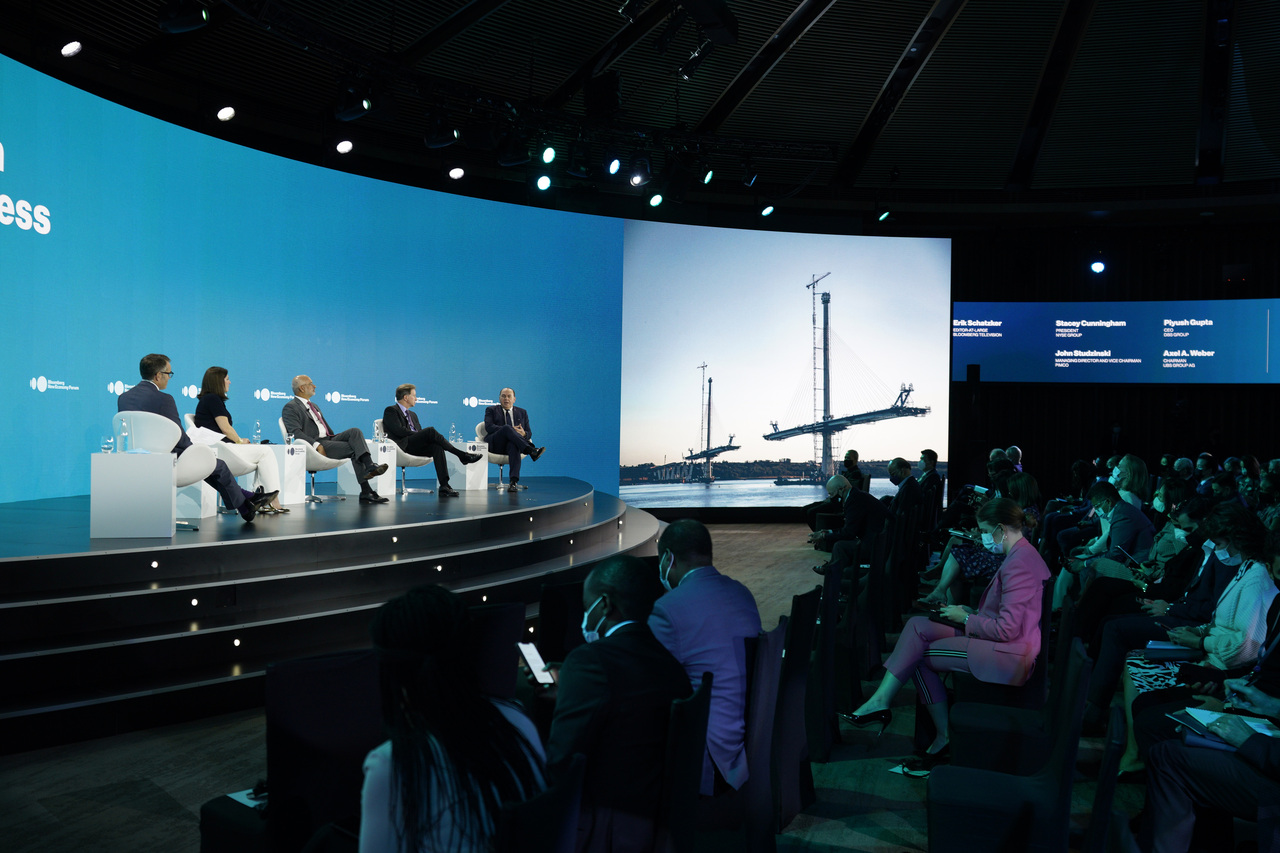Collective global action and technology key to tackling climate crisis: Bloomberg forum panel
Sign up now: Get ST's newsletters delivered to your inbox

The panel was discussing if technology could save the warming planet.
PHOTO: BLOOMBERG
SINGAPORE - Just as countries brought together their energies to tackle the Covid-19 pandemic and work to develop a vaccine in quick time, there is hope that the world can work together to respond to the climate crisis, said panellists at the Bloomberg New Economy Forum on Wednesday (Nov 17).
There is no question that technology is key to saving the planet from a climate catastrophe, said Australia's Trade, Tourism and Investment Minister Dan Tehan.
The panel was discussing whether technology could save the warming planet, as rapidly evolving technologies offer new hope for mitigating climate change. It is part of a three-day forum held at Capella Singapore on Sentosa.
"It's how we utilise that technology collectively that ultimately is going to decide whether we get to net zero (carbon emissions globally) by 2050 or not," Mr Tehan said.
"That's all up to all of us. Everyone can play their small part. And if we all do that, and technology is able to find the path, I'm confident that we can get there, but it's going to take collective action."
Singapore's Trade and Industry Minister Gan Kim Yong said Singapore is optimistic on the journey to sustainability and the opportunities for collaboration, but it is also aware of the obstacles along the way.
He noted that Singapore had started looking at sustainability decades ago when it began nation building, given its limited resources.
Over the years, it has implemented different solutions such as recycling drinking water and putting solar cells on rooftops, reservoirs and seabeds.
"But there's still a limit to how far we can go. There are some technologies that are very promising… some of these still have significant technological hurdles and, of course, cost is still a factor," he said.
"We are also recently talking about importing energy and electricity from as far away as Australia. But you can imagine the enormous challenges in bringing electricity from Australia to Singapore - but never say no. So we continue to try and continue to explore."
Mr Gan also noted that people have to be mobilised: "It will involve changing the way we live, electrifying our motor transport, changing our power generation (and) decarbonising it, and also changing our industrial processes."
He added: "So I think we require a whole-nation approach. And we are hoping that as governments, our job is to really mobilise the nation and move in the right direction."
Mr Tehan acknowledged that even in the push to have countries work together, geostrategic challenges will remain.
He said: "We can't be completely idealistic and think that that's not in the background... But I think all of us understand that, given the global nature, we will have to work in one way or another in partnership, even though those geostrategic challenges will be there in the background.
"And that's, I think, all of our hope that in a way, this is one of those issues that will be able to bring us together rather than be one where you're seeing competition for geostrategic purposes."
The panel also featured Ms Catherine Macgregor, chief executive officer of French utility firm Engie, and Mr Lei Zhang, CEO of Chinese digital energy company Envision Group. It was moderated by Mr Gerald Butts, vice-chairman of political risk consultancy Eurasia Group.


